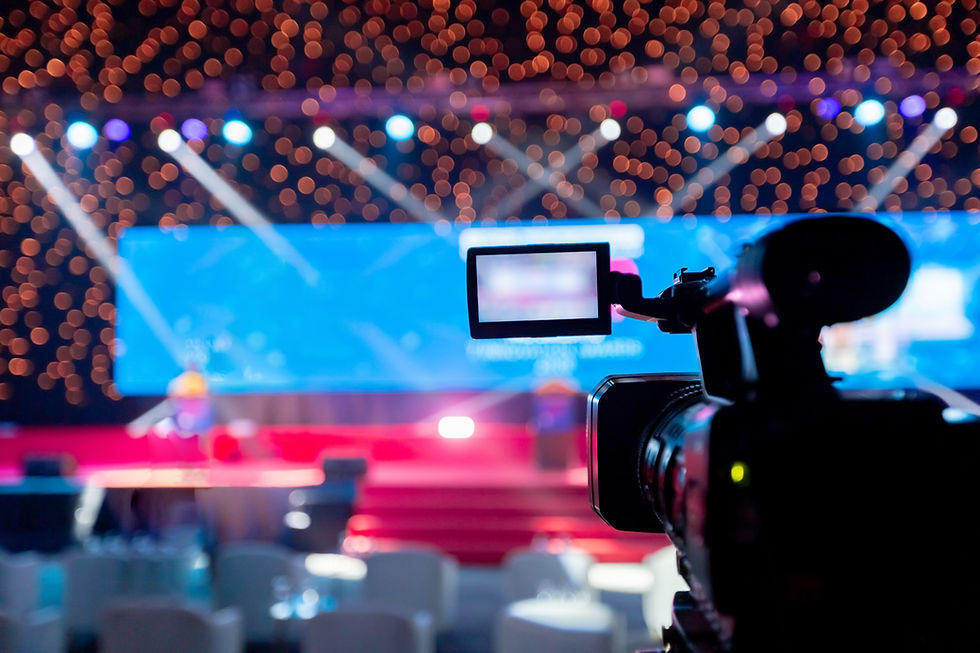Corporate, Promotional and Social Media Video Production: The Differences
- Olympix Media

- Nov 17, 2024
- 2 min read
Corporate, social media, and promotional video production serve different purposes and are tailored to meet specific communication goals for businesses.
In this blog, we explore the key differences between these types of video production:
Purpose and Audience:
Corporate Video Production: Corporate videos are created to represent the overall identity, mission, and values of a company. They are often used for internal communication, investor relations, and to showcase the company's culture and achievements.
Social Media Video Production: Social media videos are designed for platforms like Facebook, Instagram, TikTok, YouTube, and LinkedIn. They are typically shorter, engaging, and aim to capture the attention of a broader audience on social media.
Promotional Video Production: Promotional videos are focused on marketing a product, service, or event. They are crafted to generate interest, create awareness, and drive specific actions, such as making a purchase or attending an event.
Length and Format:
Corporate Video Production: Corporate videos can vary in length, but they are often longer and more detailed, providing a comprehensive view of the company. They may include talking head interviews, behind-the-scenes footage, or educational explainer formats to explain a topic or theme.
Social Media Video Production: Social media videos are typically shorter due to the shorter attention spans of users on these platforms. They often range from a few seconds to a few minutes and need to capture attention quickly.
Promotional Video Production: Promotional videos can vary in length but are generally shorter than corporate videos. They focus on delivering a concise and compelling message to encourage immediate action.
Tone and Style:
Corporate Video Production: Corporate videos often have a more formal and professional tone. They may use a documentary style or a polished and refined approach, depending on the company's branding.
Social Media Video Production: Social media videos are more informal, creative, and often leverage trends and visual elements that resonate with the platform's audience. They may include humor, relatability, or storytelling to engage viewers. Music tends to lean towards trending sounds to help enhance reach, but businesses should be mindful when using copyrighted sounds and should always own the relevant license.
Promotional Video Production: Promotional videos are designed to be persuasive and attention-grabbing. They often use high-energy music, dynamic visuals, and a call-to-action to prompt the audience to take the desired steps.
Distribution Channels:
Corporate Video Production: Corporate videos may be distributed through the company's website, email marketing, internal communication channels, and during presentations or events. On social media, LinkedIn is typically the preferred channel used for corporate purposes.
Social Media Video Production: Social media videos are specifically created for platforms like Facebook, Instagram, TikTok, YouTube and LinkedIn, taking advantage of the features and formats offered by each platform.
Promotional Video Production: Promotional videos are often used in wider marketing campaigns across various channels, including social media, websites, TV, email marketing, and events.
In summary, while all three types of video production aim to serve the interests of a business, they vary in their objectives, audience targeting, style, and distribution channels.
A successful video marketing strategy often involves a mix of these types to cater to different aspects of a business's communication needs.
Get in touch with Olympix Media today to discuss your business goals and content vision; we can guide you in the right direction, bespoke to your needs.





Comments